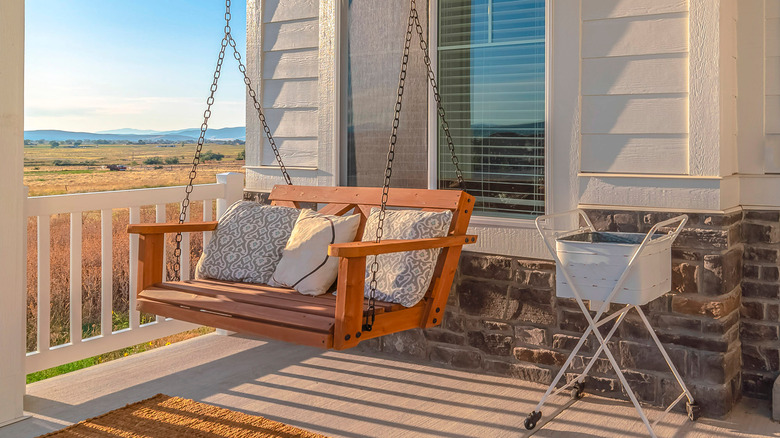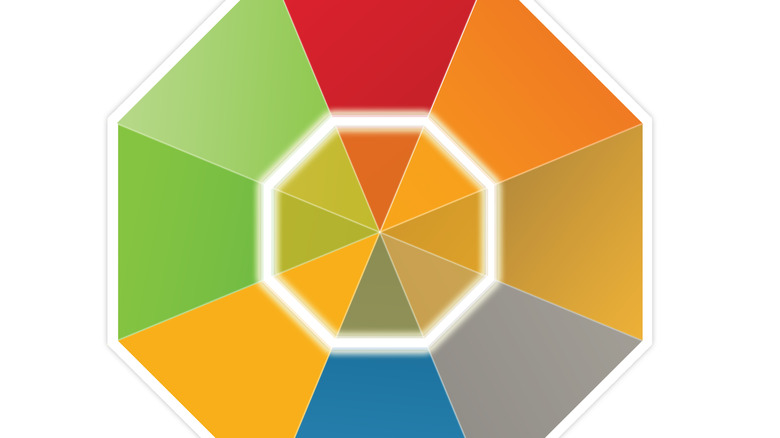How To Feng Shui Your Porch
You've likely heard of feng shui — which literally means "wind" and "water." This ancient Chinese practice refers to the ways in which objects occupying space can bring prosperity while promoting mental clarity and serenity. Colloquially, feng shui also means good fortune, and its intention is to mindfully recreate the kind of balance and harmony we unconsciously experience flowing through nature. But you certainly don't need to adopt any new spiritual beliefs to have its concepts work wonders in your home.
As Crane and Canopy explain, the feng shui theory states that a profound calm results once everything is arranged to create a healthy energy flow. Wherever these principles are put into practice, you'll find spots that are beautiful, symmetrical, free of clutter, and relaxing. Nowadays, home decorators, architects, and even city planners incorporate feng shui into their work. And while this traditional Taoist discipline has been around for centuries, homeowners are finding new ways every day to incorporate its fundamentals into their daily lives.
Mapping the energy flow
Your overarching mission is to achieve balance; to understand that objects, environment, and people all coexist harmoniously and in mutual support. The guiding principle is that the Earth is alive and that everything dwelling upon it shares a life energy force called Chi. Problems arise when this energy is out of alignment. So how can homeowners incorporate the principles of feng shui on a porch?
According to Mind Body Green, your porch area and front door are not only portals for entering your home, but they are also energy pathways. You're looking to create something that feels integrated into your home, landscape, and neighborhood, something that seems almost organic like it's always been there. When reconfiguring your porch according to the principles of feng shui, the first thing you'll want to do is assess your space and look for signs of clutter, suggests Clever. Things lying around for convenience, for example, lawn tools, muddy shoes, pet supplies, and the like need to find a new spot so there's room to breathe. When you're out on your porch, you want your mind to be relaxed rather than reminding you of the responsibilities that will eventually call you away.
The elements of feng shui
Feng shui revolves around the five basic elements of earth, water, fire, wood, and metal, all of which can be represented by colors. The writers at Redfin suggest that by identifying and understanding your home's energy map, you can choose the best colors to create harmony and invite prosperity. In addition, the energy map aligns with your entryway, and that energy needs to keep moving freely. This means avoiding sharp corners and obstacles. If your space has angles that you can't remove, you can mitigate their effect by using round pots and plants and symmetrical furniture. The Spruce advises that lighting is also essential because it incorporates the element of fire, which brings clarity and brightness.
On the other hand, the color you pick is less important than how it complements your home and your neighborhood. Again, in feng shui, harmony is key, your porch is not only a threshold to your home but an outdoor room unto itself. Design features such as cushions and pillows, wind chimes, a fountain, statuary, lanterns, plants on either side of the front door, and decorative signage all transmit that yours is a fully integrated home, not just an address.


